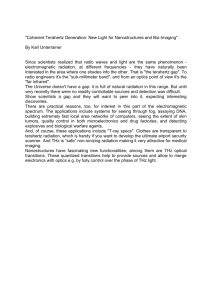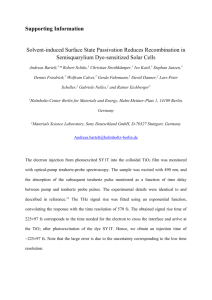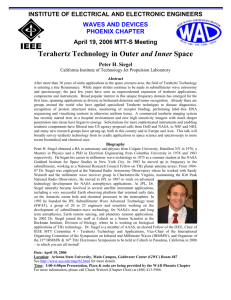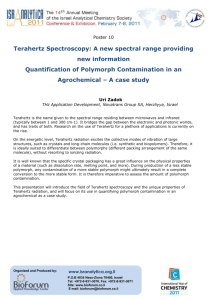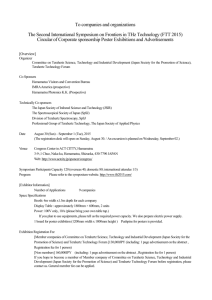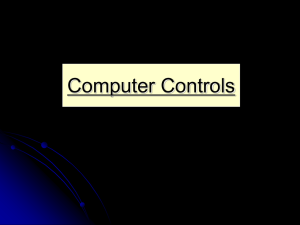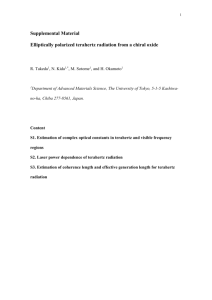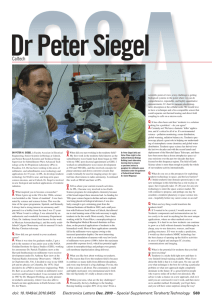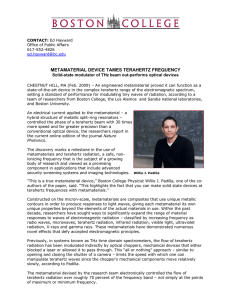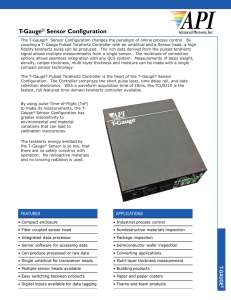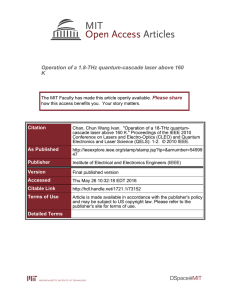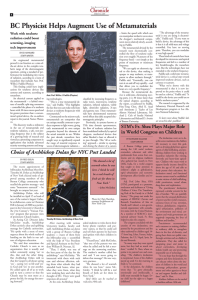Research activities and opportunities on terahertz microstructures
advertisement
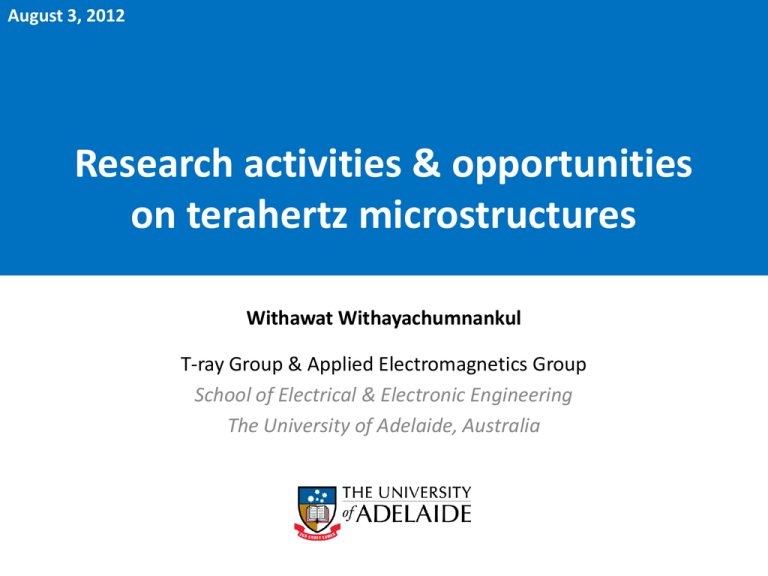
August 3, 2012 Research activities & opportunities on terahertz microstructures Withawat Withayachumnankul T-ray Group & Applied Electromagnetics Group School of Electrical & Electronic Engineering The University of Adelaide, Australia Terahertz radiation • Terahertz spectrum lying between 0.1 and 10.0 THz • Usually referred to as ‘terahertz gap’ • Electronic approach hindered by conduction loss & parasitic capactitance • Thermal sources swamped by thermal background radiation at room temperature 2 Potential applications Spectroscopy Security screening Nondestructive evaluation Medical diagnosis Short-range communication3 Selected research activities on terahertz microstructures • • • • • • Fishnet structure for negative refractive index Plasmonic coaxial cavities Strain sensors Biomolecular sensors Reflectarrays Magnetic plasmon waveguides 4 Fishnet structure for negative refractive index 5 Plasmonic coaxial cavities 6 Strain sensors E k H 7 Biomolecular sensors Near-field system Metasurface partially loaded with thin film Cross section of terahertz beams from full-wave simulation (left) 25 µm, (right) 50 µm from DAST crystal 8 Reflectarray antennas 9 Magnetic plasmon waveguide Normal H-field at 0.5 THz Normal H-field at 1.0 THz 10 Collaborators • • • • • • • • Prof. Arnan Mitchell, Dr. Sharath Sriram, Dr. Madhu Bhaskaran, Charan Shah, Functional Materials and Microsystems Research Group, RMIT, Melbourne Prof. Masayoshi Tonouchi, Institute of Laser Engineering, Osaka U, Japan Prof. Weili Zhang, Dr. John O’Hara, Dr. Ranjan Singh, Oklahoma State U, USA Dr. Markus Walther and Korbinian Kaltenecker, University of Freiburg, Germany Dr. Bernd Fischer, University of Marburg, Germany Dr. Ibraheem Al-Naib, INRS-EMT, Canada Dr. Adisorn Tuantranont, Nanoelectronics and MEMS Laboratory, NECTEC, Thailand Prof. Hui Liu, National Lab of Solid State Microstructures, Nanjing University, China 11 Special thanks • • • • Prof. Derek Abbott Prof. Christophe Fumeaux Dr. Hungyen Lin Benjamin Ung • Andrew Li • Tiaoming Nui • Henry Ho A part of work in this presentation was supported by the Australian Research Council Discovery Projects funding scheme under Project DP1095151. 12 Finally… • We have opportunities for prospective PhD students in these sub-fields of terahertz research: – Terahertz plasmonics – Dielectric resonators – Photonic crystals – Plasmon waveguides – Microfluidic sensors – Etc. • Feel free to drop me an email at withawat@eleceng.adeladie.edu.au 13
